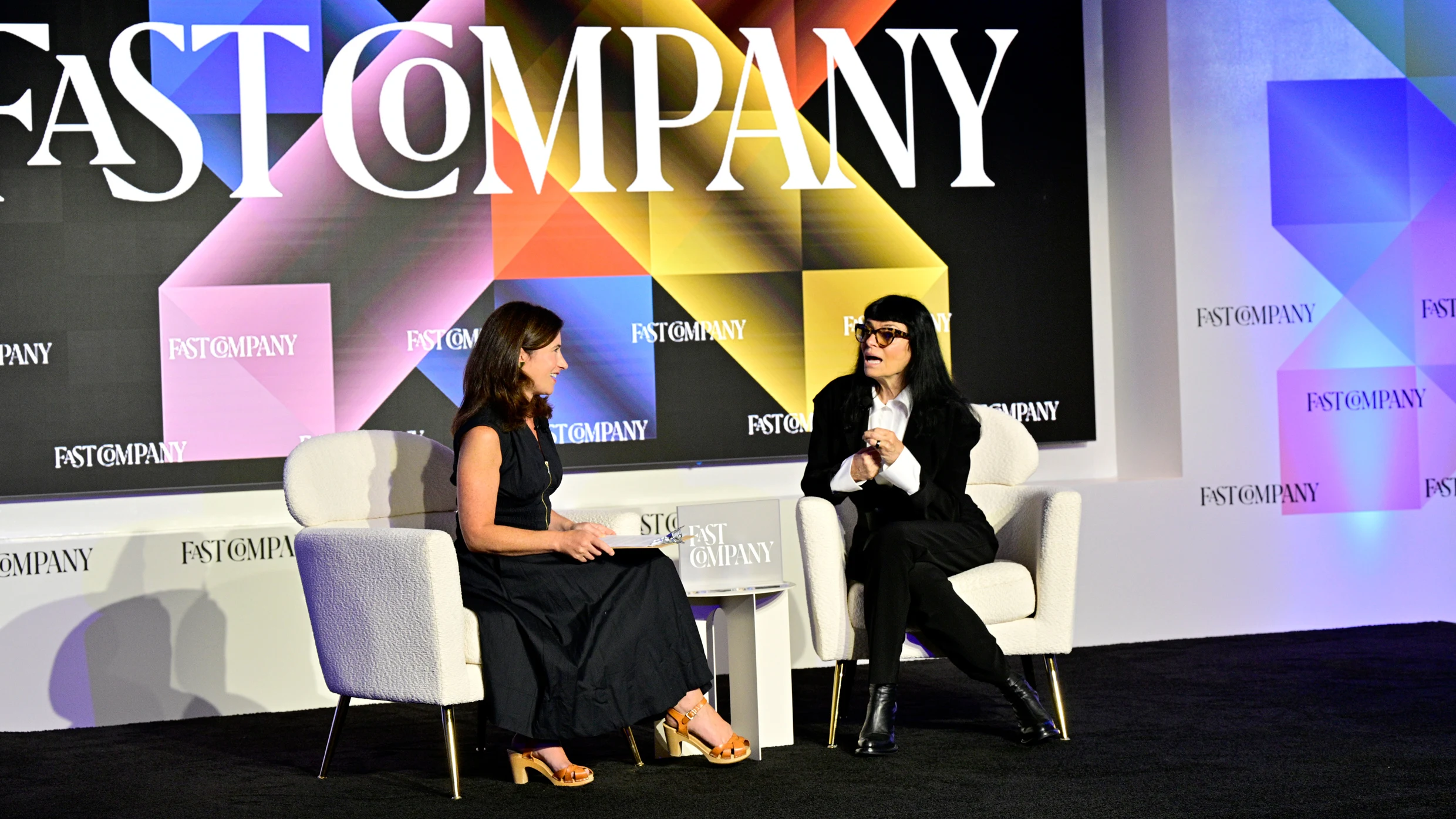
When using AI, most of us worry about the technology hallucinating—telling us lies, misinformation, or nonsense that it presents as fact. But legendary fashion designer Norma Kamali has no such fear.
Over the past two years, Kamali has been using AI extensively in her work. Kamali, who recently celebrated her 80th birthday, partnered with computer scientists to create an AI platform based on her five decades of work as a designer, and she also took an AI course at MIT to better understand how the technology works.
“These scientists asked if they could download my brain,” she says. “They would isolate my intellectual property, brand history, and archive. At first I said, “No way.” But I’ve come to see the possibilities for my brand.”
Kamali has used her AI platform to design pieces for her own collection, including variations of her famous Sleeping Bag Coat. But she says that as she interacts with the AI, some of her favorite moments are when it hallucinates, generating bizarre images that explode with a strange kind of creativity. “The image is always a surprise,” she says. “If I say something like, ‘I’d like to put a fishtail on this swimsuit worn with a sleeping bag coat,’ the AI goes crazy. It’s beyond gorgeous in the most art tech, fashion way.”
Subscribe to the Design newsletter.The latest innovations in design brought to you every weekday
Privacy Policy
|
Fast Company Newsletters
As AI companies continue to refine the technology with the aim of eliminating mistakes, Kamali believes it’s only a matter of time before hallucinations no longer occur. But she says she’ll be sad when that time comes. In many ways, her open-minded approach to AI is a microcosm of her openness as a designer, which has paved the way to all kinds of unconventional, creative collaborations.
“AI, for me, has been a really joyous experience,” she says. “We’re in this little moment in history that will eventually disappear. But then we’ll find other things to excite us.”
Kamali launched her label in 1976 and became an overnight sensation when Farrah Fawcett wore one of her red bathing suits in a poster that same year. It’s ironic to Kamali that she first made her name with a swimsuit because she really didn’t like the version that Fawcett had purchased. “I would use my shop as a lab, making six of a new style to test and see what sold,” she recalls. “I had no idea she had come in and bought that one. I really hated it: I didn’t like the fit or anything about it, and quickly took it out of the shop.”
Kamali is proudest of the moments when she’s been willing to innovate and explore ideas that to others may have seemed unconventional. She’s often proven to be far ahead of her time. In the early 1970s, for example, she created the Sleeping Bag Coat, inspired by a camping trip. The coat became iconic (it’s on display at MoMA), at a time when most coats were made of wool.
It ended up being a precursor to the puffer coats that are now ubiquitous around the world in cold weather. Another cutting edge-design was her line of Sweats sportswear, which she launched in the 1980s. It was designed to be worn outside of the gym, three decades before the “athleisure” trend would take over modern life.
Kamali hasn’t just been willing to take risks with design, she’s also been willing to try new things at retail. In 2003, Target began collaborating with designers to create more affordable versions of their clothing, starting with Isaac Mizrahi and Michael Graves. Walmart, on the other hand, was not known for being particularly design-oriented. But in the early 2000s, Kamali met with a Walmart buyer who proposed a partnership. Much like with AI, Kamali took a minute to think about it before she embraced it. “I was like, Oh my God, I’ve never been to Walmart,” she recalls thinking.
advertisement
Then she realized there was a need for smart, fashion-forward clothes at an affordable price point. She grew up going to public schools in New York City, and she knew there were many parents who didn’t attend parent-teacher meetings because they didn’t have the right clothes. There were also teachers who couldn’t afford to buy professional-looking clothes on their salaries. “I felt that teachers should dignify the position, and look amazing in front of the kids in their class,” she says.
So Kamali created a wardrobe that was everything an adult would need to walk into a school and look polished: a trench coat, a white collared shirt, black trousers, ballet slippers, and pumps. She also worked hard to find manufacturers who could create these products at the best possible quality given the price point, which was less than $20 per item. The popularity of the collection became clear when Kamali noticed that people were reselling these products on eBay for upwards of $200 apiece.
Ultimately, Kamali believes the success of her business has been all about being open to going in unconventional directions, and not following the status quo within the industry. This is another moment when she can redefine her work, and Kamali doesn’t want to miss the chance to engage in new creative outlets. “There’s a lot of fear, but there’s so much more opportunity,” she says. “I’m having a wonderful time playing around with [AI] and asking it to play with my ideas.”



